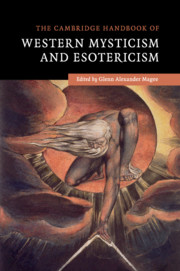Book contents
- Frontmatter
- Dedication
- Contents
- Acknowledgments
- Editor's Introduction
- List of contributors
- I ANTIQUITY
- II THE MIDDLE AGES
- III THE RENAISSANCE AND EARLY MODERNITY
- IV THE NINETEENTH CENTURY AND BEYOND
- V COMMON THREADS
- 30 Alchemy
- 31 Astrology
- 32 Gnosis
- 33 Magic
- 34 Mathematical Esotericism
- 35 Panpsychism
- 36 Sexuality
- Suggestions for Further Reading
- Index
- References
31 - Astrology
from V - COMMON THREADS
Published online by Cambridge University Press: 05 May 2016
- Frontmatter
- Dedication
- Contents
- Acknowledgments
- Editor's Introduction
- List of contributors
- I ANTIQUITY
- II THE MIDDLE AGES
- III THE RENAISSANCE AND EARLY MODERNITY
- IV THE NINETEENTH CENTURY AND BEYOND
- V COMMON THREADS
- 30 Alchemy
- 31 Astrology
- 32 Gnosis
- 33 Magic
- 34 Mathematical Esotericism
- 35 Panpsychism
- 36 Sexuality
- Suggestions for Further Reading
- Index
- References
Summary
Introduction: Astrology Defined
Astrology (from Greek, “science of the stars”) belongs to the oldest cultural phenomena of humankind. Its persistence from antiquity to modernity – despite many transformations and various developments – is remarkable. If we want to define this phenomenon, we can say that, most generally, astrology engages the supposed relationship and correspondences between the heavenly realm (the stars, planets, zodiacal signs, etc.) and the earthly realm. To interpret these correspondences and interrelationships, astrology developed different and often conflicting strategies. On the one hand, astrologers asserted a causal influence of heavenly bodies on the sublunar world, which consequently seems to lead to a deterministic or even fatalistic worldview. Ancient Greek philosophers – particularly the Stoics – spoke of the cosmos as a complex network of correspondences and influences, governed by a hidden power. On the other hand, astrologers argued that the stars do not exert influence themselves but that they are mere “signs” or “symbols” of powers that are active throughout the cosmos. The intellectual, religious, and ethical issues that are linked to these alternatives have been part of astrological discussion ever since. Are the heavenly signs simply accompanying the mundane events, or are they responsible for them? And if there is a sympathetic correspondence between the celestial sphere and the earth, does this necessarily imply a deterministic or fatalistic influence?
The answers to these questions evidently challenge philosophical and religious convictions. Particularly in Western scriptural religions, a deterministic interpretation of astrology was often seen as problematic because it seems to eliminate freedom, the prerequisite of moral action and the precondition of redemption, punishment, and sin. Not surprisingly, then, it was the second alternative that gained the upper hand in Western cultural history: The stars were deprived of their divine power and were seen as mere “instruments of God,” their path interpreted as “God's handwriting” (already in Origen's Philocalia).
The search for underlying principles in the correspondence between heavenly and earthly realms brought forth several fields of interest that can be distinguished as different areas of astrological practice. Already at an early stage, the prediction of agricultural matters and weather conditions was made on an astrological basis. This could mean that eclipses of the sun and moon, conjunctions of planets, or the paths of individual planets were correlated with climatic conditions.
- Type
- Chapter
- Information
- The Cambridge Handbook of Western Mysticism and Esotericism , pp. 372 - 380Publisher: Cambridge University PressPrint publication year: 2016



